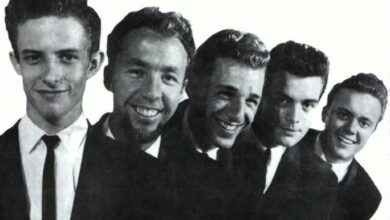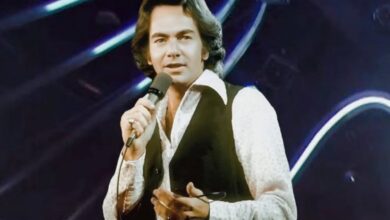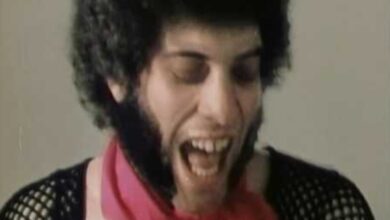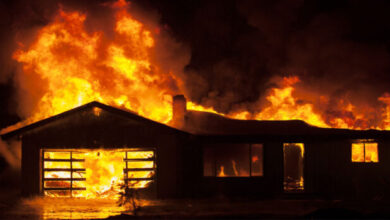Bee Gees’ “Alone” Marks a Triumphant Return to the Charts and Reinforces the Enduring Power of Brotherly Harmony in 1997
Released in January 1997, “Alone” signaled a dramatic and emotional return for the Bee Gees after more than a decade away from mainstream chart prominence. As the lead single from their album Still Waters, the song reached the Top 5 in the UK and became their final Top 30 hit in the United States. Beyond its chart performance, “Alone” was a bold reaffirmation of the trio’s timeless ability to evolve and connect with audiences across generations. In a decade dominated by boy bands and grunge leftovers, the Bee Gees found renewed relevance through a sound that was both contemporary and rooted in their emotional, harmony-driven core.
By the time “Alone” was released, the Bee Gees had already been through three major musical eras: their melancholic baroque-pop phase in the 1960s, their world-conquering disco dominance in the late ’70s, and their quieter songwriting renaissance throughout the ’80s, penning hits for others even as their own chart presence waned. Originating from the Isle of Man and raised in both Manchester and later Australia, brothers Barry, Robin, and Maurice Gibb had become one of the most prolific and resilient acts in music history. Their secret weapon was always their vocal blend—a singular harmonic force created by blood ties and deep emotional synchronicity.
“Alone” was co-written by all three brothers during a time of reflection and rebirth. The lyrics explore themes of isolation, longing, and the bittersweet passage of time—fitting topics for a group who had weathered public backlash, private grief, and shifting musical tides. The chorus—“I don’t wanna be alone”—hit with a universality that few acts could deliver so sincerely. It wasn’t just a love song; it was a cry from artists who had spent years creating together and still yearned to be heard.
The song was produced by the Bee Gees themselves, alongside Russ Titelman, a respected figure in the industry who had worked with the likes of Eric Clapton, Randy Newman, and James Taylor. The production melded contemporary pop sensibilities with rich orchestration and layered harmonies. Barry’s voice, deepened by years and sorrow, took the lead, while Robin and Maurice echoed in with delicate textures that gave the track emotional weight. The arrangement leaned on piano, strings, and ambient guitar lines—choosing restraint over bombast.
Upon release, “Alone” was met with acclaim from both critics and fans. In the UK, it soared to No. 5 on the Singles Chart, marking their highest charting song there since the early 1980s. In the U.S., it peaked at No. 28 on the Billboard Hot 100 and climbed even higher on Adult Contemporary charts. The song performed particularly well in Europe and Australia, where the group retained loyal followings. It spent weeks on airplay charts, driven by nostalgia and admiration for the group’s ability to stay current without compromising their sound.
More than just a comeback single, “Alone” helped shift the narrative surrounding the Bee Gees in the late ’90s. No longer confined to disco retrospectives, the trio were suddenly back in the conversation as contemporary artists. It reminded both critics and a younger generation that the Bee Gees were not a relic of the past, but a living, evolving act with something new to say. The emotional maturity of the song appealed across age groups, bridging generations through universal sentiment.
The success of “Alone” helped reestablish the Bee Gees as global touring artists. Their One Night Only concert in Las Vegas later that year was a televised success and led to a string of high-profile performances and a live album. For many fans, the song became the emotional centerpiece of those concerts—a moment where past and present met, wrapped in the unmistakable sound of fraternal harmony.
In terms of influence, “Alone” didn’t birth a new genre or spark a wave of imitators, but its significance lies in its demonstration of graceful aging within pop music. At a time when aging acts were often dismissed or relegated to oldies circuits, the Bee Gees charted with dignity. They proved that it was possible to evolve without losing one’s essence. The track offered a blueprint for artists like Elton John and Paul McCartney, who also sought meaningful late-career reinvention.
Few covers of “Alone” have matched the intensity of the original, but its impact is reflected in countless performances across singing competitions and tribute shows. Its soaring chorus and emotional accessibility make it a favorite for vocalists wanting to convey heartfelt vulnerability. The Gibb brothers’ unique vocal interplay, however, remains unmatched—a blend born not just of skill, but of shared life.
The late ’90s were a time of personal significance for the brothers as well. Maurice, in particular, was enjoying a newfound stability after years of health struggles. The group’s creative unity during this period brought a sense of closure to previous rifts. “Alone” felt like a musical reflection of that closeness—an acknowledgment of time’s passage and the emotional spaces that linger in its wake.
Today, “Alone” is considered one of the Bee Gees’ most underappreciated masterpieces. While it may not feature in every disco playlist or retrospective of their 1970s heyday, it holds a special place in the group’s legacy. Its presence on greatest hits albums and live recordings ensures its continued relevance, particularly for fans who discovered the group during this era of resurgence.
The song also helped set the stage for the Bee Gees’ final acts as a trio. Their 2001 release This Is Where I Came In and accompanying farewell tour built on the emotional groundwork laid by “Alone.” It gave their final years a tone of reflection and quiet strength—one that celebrated their bond more than their fame.
Following the tragic passing of Maurice in 2003 and later Robin in 2012, “Alone” has taken on deeper meaning. When Barry performs it solo today, the song resonates not only as a romantic ballad but as a tribute to the brothers he lost. The lyric “I don’t wanna be alone” now echoes with a personal poignancy that transcends the original context.
Ultimately, “Alone” remains a testament to the Bee Gees’ songwriting prowess, emotional depth, and remarkable ability to adapt without losing their essence. It stands as proof that even after decades in the spotlight—and in its shadows—the brothers could still reach into the hearts of millions with just a few lines and a melody. In a world of fleeting trends, “Alone” endures because sincerity, when sung in harmony, never fades.



